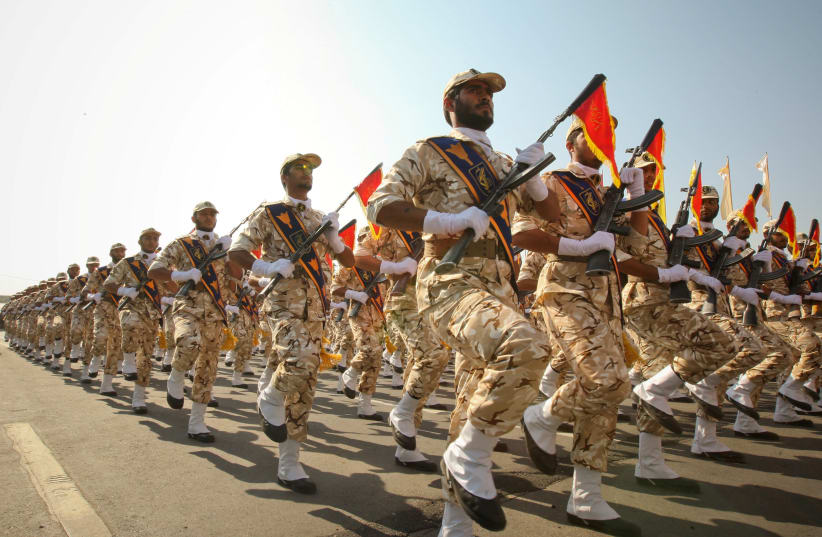Earlier this month that stunning news report appeared on World Watch Monitor, a trustworthy Christian website. An Iranian-born writer described the number of arrests – 114 in one week alone – as nothing short of “staggering.”
Of course, arrests are nothing new in Iran. Foreign journalists and lost hikers are apprehended as “spies.” International businessmen are pulled off planes and detained. Christians, and particularly converts, are accused of acting as subversive “Christian Zionists.” Iran’s arrests are often based on fabricated threats to national security, followed by beatings, lock-ups with violent cellmates and torturous interrogations.
And sometimes the consequences are far worse.
An Iranian Christian acquaintance of mine, while imprisoned in Iran’s notorious Raja’i Shahr prison, befriended an alleged Israeli spy. The Christian described being unexpectedly awakened and forced outside early one morning, just in time to watch in horror as his new Israeli friend was hanged. Yet another Iranian “national security” threat had been neutralized by the noose.
In 2017, there were at least 517 executions in Iran.
Meanwhile, the story about the “staggering” number of Christian arrests tells us all we need to know about Iran’s intolerance for religious minorities.
And disturbing as the number of arrests may be, they come as no surprise to those who keep an eye on Iran’s abusive regime, particularly in regard to religious freedom.
First of all, when it comes to the persecution of Christians, Iran ranks as the 10th worst country in the world, according to World Watch List. And the US government explains why. According to the United States International Religious Freedom (USCIRF) Report for 2018.
“In the past year, religious freedom in Iran continued to deteriorate for both recognized and unrecognized religious groups, with the government targeting Baha’is and Christian converts in particular...
Christian converts and house church leaders faced increasing harsh sentencing: many were sentenced to at least 10 years in prison for their religious activities...”
Iran permits historic Christian churches, such as Assyrian/Chaldean and Armenian Orthodox, to perform their ancient liturgies and other rites. But the same respect is not provided for Christian converts. Why? Because more than a few aren’t simply Christians.
Many of them are ex-Muslims.
And therein lies a grave danger: conversion from Islam to another faith is a capital offense according to Islamic law. That edict is either on the legal books in Islamic countries or is implicit because of Sharia law – always the highest authority.
Yet despite the risks involved, many Iranians have abandoned what one woman described to me as the “sad and depressing Shi’ite religion.”
America’s National Public Broadcasting recently reported on a gathering of Iranians in Turkey who had converted to Christianity. “‘It feels good. Our relationship to God becomes closer,’ Farzana says.
She doesn’t want to give her last name because she says her family in Iran might face persecution for her conversion. Her family knows she is a convert and they’re scared for their own safety inside Iran...”
Another convert explained, “The system of authority in Iran has put Iranians under a lot of pressure, and they don’t see any hope. They are in search of God, but they want to find another path because they’re discontent with the options they’ve been given.” He also didn’t feel safe sharing his name.
Apart from Christian converts, Sunni and Sufi Muslims, Zoroastrians and particularly Baha’is continue to face intense discrimination and, too easily, imprisonment. And while some say there are more than 15,000 Jews in Iran, others claim there are far less, and that their population is shrinking. In any case, with a government that openly and repeatedly calls for “Death to Israel,” Iran’s Jews live under close scrutiny.
Whatever faith one embraces in the Islamic Republic of Iran, if it is not Shi’ite Islam, it is incompatible with the mullahcracy that rules the country. That means there can be life-or-death risks for minority members who protest, defy the rules, speak too boldly, or otherwise offend the turbaned clerics who cling to power with their iron fists.
On December 17, the United Nations approved a Canada-sponsored resolution, supported by 40 human rights organizations, which rejected Iran’s continuing rights violations including discrimination against women and the “imposition of the death penalty against persons who at the time of their offense were under the age of 18.” The resolution also forbade Iran’s abuses of minorities – including religious groups – and its widespread practice of arbitrary detention, demanding that it “release those who have been arbitrarily detained.”
Iran called the resolution “a political charade.”
So what can be expected for those Christians who decide to share the Christmas story with their Iranian friends and neighbors? The price tag is clearly visible: arrest, confiscated mobile devices, detention, intense interrogations and the very real threat of brutal, long-term imprisonment.
Thankfully, at least for now, the world is watching.
The writer is an internationally recognized expert on religious persecution, an award-winning author and an adjunct fellow at the Hudson Institute who lived in Jerusalem for over a decade. Her book Saturday People, Sunday People: Israel through the Eyes of a Christian Sojourner received wide critical acclaim. She is also coauthor of Persecuted: The Global Assault on Christians, and Blind Spot: When Journalists Don’t Get Religion. Follow her on Facebook and Twitter @ lelagilbert.
